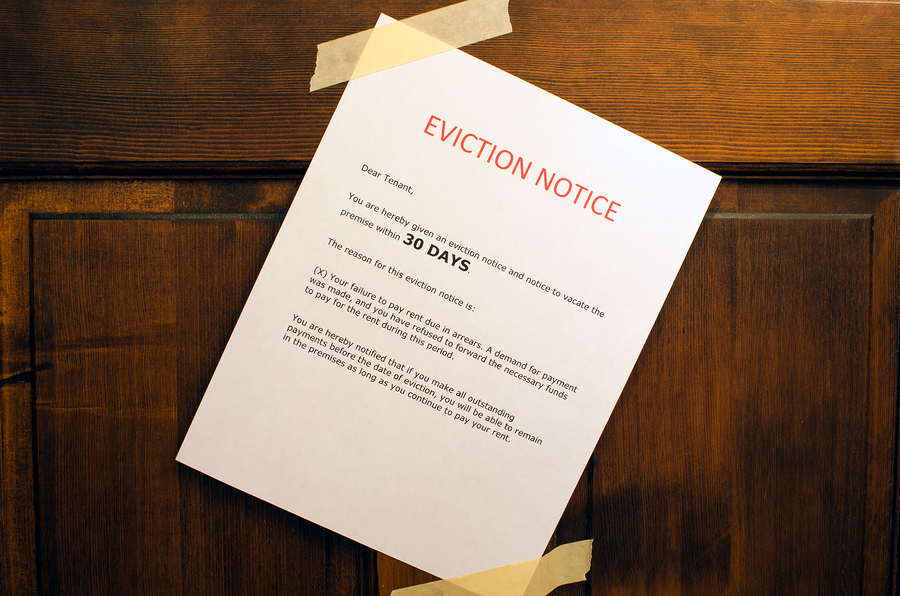
Are you behind on your rent and other bills? Is your landlord making threats of eviction? Has an eviction suit been filed? Filing bankruptcy can help stop the eviction process and give you more time to work out an arrangement with your landlord to either catch up on your rent or to save up money so you can move. Chapter 7 bankruptcy can also forgive the back rent that you owe. Bankruptcy is not something you should enter into lightly or simply to deal with eviction. But if you have a pile of other debts accumulated, including maxed out credit cards, medical bills and other unsecured debts, it may be a solution to consider.
How does eviction work in North Carolina?
First, your landlord cannot simply evict you themselves. For instance, if you are behind on rent, they cannot come by and tell you to get out and then start dragging your possessions onto the street. Just a landlord saying “you have to go” is not enough, either. Landlords cannot threaten you with jail for unpaid rent and there are very specific laws they must follow in order to remove you from their property.
Your landlord cannot change the locks on you for unpaid rent or take any other action that will deny you access to the property without a formal order of eviction from the court. The landlord must provide you written notice after you are past due that if all past due rent is not paid within 10 days, legal action will be initiated. That doesn't mean after 10 days that you are evicted. It means that they have to give you 10 days notice of intent to file for an eviction.
When is it too late to stop an eviction?
If the 10 days pass and you cannot catch up your past due balance, then your landlord must file a Summons and Complaint in Summary Ejectment. These documents must be served by the Sheriff's office or posted on your door and will tell you when the hearing is. You have seven days to post a reply. If you have received this notice, but the hearing hasn't been held and no Writ of Execution has been issued, there is time to stop the eviction with a bankruptcy.
Filing a Chapter 7 bankruptcy will temporarily halt the eviction process and will wipe out any rent payments you have missed so long as the judgment to evict hasn't been issued by the court. The landlord can fight the stay on evicting you with the court. Filing a Chapter 13 bankruptcy should give you time to catch up the back payments over time so long as you resume making current monthly payments.
If you're facing eviction, get professional advice
For those behind on their rent or mortgage payments, bankruptcy can be a valuable tool to buy more time to either catch up payments to remain in the property they are buying or leasing or to give you a pass on unpaid back balances so you can save up and move on to a more favorable rental situation. This is a complex area of law and every circumstance is different.
To find out if bankruptcy is an appropriate solution to your housing dilemma, contact the professionals at the law offices of John T Orcutt for a free consultation.
